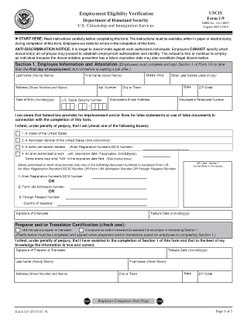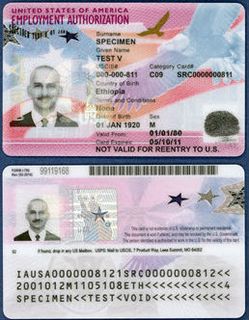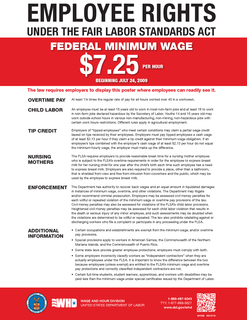Related Research Articles
Labour law mediates the relationship between workers, employing entities, trade unions and the government. Collective labour law relates to the tripartite relationship between employee, employer and union. Individual labour law concerns employees' rights at work also through the contract for work. Employment standards are social norms for the minimum socially acceptable conditions under which employees or contractors are allowed to work. Government agencies enforce labour law.

The National Labor Relations Act of 1935 is a foundational statute of United States labor law which guarantees the right of private sector employees to organize into trade unions, engage in collective bargaining, and take collective action such as strikes. Central to the act was a ban on company unions. The act was written by Senator Robert F. Wagner, passed by the 74th United States Congress, and signed into law by President Franklin D. Roosevelt.

Workers' compensation or workers' comp is a form of insurance providing wage replacement and medical benefits to employees injured in the course of employment in exchange for mandatory relinquishment of the employee's right to sue his or her employer for the tort of negligence. The trade-off between assured, limited coverage and lack of recourse outside the worker compensation system is known as "the compensation bargain". One of the problems that the compensation bargain solved is the problem of employers becoming insolvent as a result of high damage awards. The system of collective liability was created to prevent that, and thus to ensure security of compensation to the workers. Individual immunity is the necessary corollary to collective liability.
The Computer Fraud and Abuse Act (CFAA) is a United States cybersecurity bill that was enacted in 1986 as an amendment to existing computer fraud law, which had been included in the Comprehensive Crime Control Act of 1984. The law prohibits accessing a computer without authorization, or in excess of authorization. Prior to computer-specific criminal laws, computer crimes were prosecuted as mail and wire fraud, but the applying law was often insufficient.
Employment is a relationship between two parties, usually based on contract where work is paid for, where one party, which may be a corporation, for profit, not-for-profit organization, co-operative or other entity is the employer and the other is the employee. Employees work in return for payment, which may be in the form of an hourly wage, by piecework or an annual salary, depending on the type of work an employee does or which sector they are working in. Employees in some fields or sectors may receive gratuities, bonus payment or stock options. In some types of employment, employees may receive benefits in addition to payment. Benefits can include health insurance, housing, disability insurance or use of a gym. Employment is typically governed by employment laws, organisation or legal contracts.
The H-1B is a visa in the United States under the Immigration and Nationality Act, section 101(a)(15)(H) that allows U.S. employers to temporarily employ foreign workers in specialty occupations. A specialty occupation requires the application of specialized knowledge and a bachelor's degree or the equivalent of work experience. The duration of stay is three years, extendable to six years; after which the visa holder may need to reapply. Laws limit the number of H-1B visas that are issued each year: 188,100 new and initial H-1B visas were issued in 2019. Employers must generally withhold Social Security and Medicare taxes from the wages paid to employees in H-1B status.
Bronte International University is an unaccredited post-secondary educational institution formerly in South Dakota. It is widely considered to be a diploma mill, operated from an unknown location. Its website offers "fast" degrees for "life experience".
The Consolidated Omnibus Budget Reconciliation Act of 1985 (COBRA) is a law passed by the U.S. Congress on a reconciliation basis and signed by President Ronald Reagan that, among other things, mandates an insurance program which gives some employees the ability to continue health insurance coverage after leaving employment. COBRA includes amendments to the Employee Retirement Income Security Act of 1974 (ERISA). The law deals with a great variety of subjects, such as tobacco price supports, railroads, private pension plans, emergency department treatment, disability insurance, and the postal service, but it is perhaps best known for Title X, which amends the Internal Revenue Code and the Public Health Service Act to deny income tax deductions to employers for contributions to a group health plan unless such plan meets certain continuing coverage requirements. The violation for failing to meet those criteria was subsequently changed to an excise tax.

The Family and Medical Leave Act of 1993 (FMLA) is a United States labor law requiring covered employers to provide employees with job-protected and unpaid leave for qualified medical and family reasons. The FMLA was a major part of President Bill Clinton's first-term domestic agenda, and he signed it into law on February 5, 1993. The FMLA is administered by the Wage and Hour Division of the United States Department of Labor.
A background check is a process a person or company uses to verify that an individual is who they claim to be, and this provides an opportunity to check and confirm the validity of someone's criminal record, education, employment history, and other activities from their past. The frequency, purpose, and legitimacy of background checks varies among countries, industries, and individuals. An employment background check typically takes place when someone applies for a job, but it can also happen at any time the employer deems necessary. A variety of methods are used to complete these checks including comprehensive database search and personal references.
An open shop is a place of employment at which one is not required to join or financially support a union as a condition of hiring or continued employment.
A furlough is a temporary leave of employees due to special needs of a company or employer, which may be due to economic conditions of a specific employer or in society as a whole. These involuntary furloughs may be short or long term, and many of those affected may seek other temporary employment during that time.

Form I-9, officially the Employment Eligibility Verification, is a United States Citizenship and Immigration Services form. Mandated by the Immigration Reform and Control Act of 1986, it is used to verify the identity and legal authorization to work of all paid employees in the United States. All U.S. employers must ensure proper completion of Form I-9 for each individual they hire for employment in the United States.
Sick leave is paid time off from work that workers can use to stay home to address their health needs without losing pay. It differs from paid vacation time or time off work to deal with personal matters, because sick leave is intended for health-related purposes. Sick leave can include a mental health day and taking time away from work to go to a scheduled doctor's appointment. Some policies also allow paid sick time to be used to care for sick family members, or to address health and safety needs related to domestic violence or sexual assault. Menstrual leave is another type of time off work for a health-related reason, but it is not always paid.

A Form I-766 employment authorization document or EAD card, known popularly as a work permit, is a document issued by the United States Citizenship and Immigration Services (USCIS) that provides temporary employment authorization to noncitizens in the United States.
Card check is a method for employees to organize into a labor union in which a majority of employees in a bargaining unit sign authorization forms, or "cards", stating they wish to be represented by the union. Since the National Labor Relations Act (NLRA) became law in 1935, card check has been an alternative to the National Labor Relations Board's (NLRB) election process. Card check and election are both overseen by the National Labor Relations Board. The difference is that with card sign-up, employees sign authorization cards stating they want a union, the cards are submitted to the NLRB and if more than 50% of the employees submitted cards, the NLRB requires the employer to recognize the union. The NLRA election process is an additional step with the NLRB conducting a secret ballot election after authorization cards are submitted. In both cases the employer never sees the authorization cards or any information that would disclose how individual employees voted.
The Employee Free Choice Act is the name for several legislative bills on US labor law which have been proposed and sometimes introduced into one or both chambers of the U.S. Congress.
Job fraud refers to fraudulent or deceptive activity or representation on the part of an employee or prospective employee toward an employer. It is not to be confused with employment fraud, where an employer scams job seekers or fails to pay wages for work performed. There are several types of job frauds that employees or potential employees commit against employers. While some may be illegal under jurisdictional laws, others do not violate law but may be held by the employer against the employee or applicant.
E-Verify is a United States Department of Homeland Security (DHS) website that allows businesses to determine the eligibility of their employees, both U.S. and foreign citizens, to work in the United States.

The Fair Labor Standards Act of 1938 29 U.S.C. § 203 (FLSA) is a United States labor law that creates the right to a minimum wage, and "time-and-a-half" overtime pay when people work over forty hours a week. It also prohibits employment of minors in "oppressive child labor". It applies to employees engaged in interstate commerce or employed by an enterprise engaged in commerce or in the production of goods for commerce, unless the employer can claim an exemption from coverage.
References
- ↑ "Completing Section 3, Reverification and Rehires". USCIS. Retrieved 2018-07-27.
| This job-, occupation-, or vocation-related article is a stub. You can help Wikipedia by expanding it. |